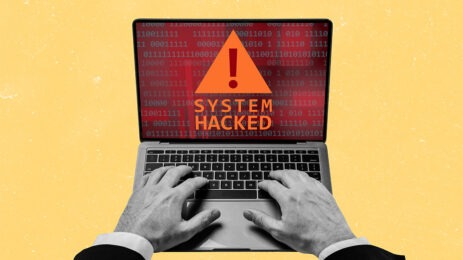
It’s easy to get excited about a product during a sales demo, but it’s important to know your event tech platform’s team will meet your expectations and your event’s needs. Here are the 10 questions you need to ask the event tech vendor before you get started.
What does my post-sale journey look like?
Their answer should provide a 360-degree view of what you can expect after you have contracted with the vendor; you need to know how they will handle your account from signing to the event execution. The event-tech vendor should give you clarity as a customer about the entire mapping and timing of your customer journey from before the event until after it is complete and beyond.
What does the handoff process look like, and how do you conduct a knowledge transfer internally?
Asking this question will preempt the loss of information in the transition between the sales and customer experience teams. The answer you receive will give you two perspectives on your vendor: how effectively the next set of stakeholders are prepared to manage your account/event and where you may need to avoid gaps in the knowledge transfer.
Read More: Hubilo’s MIX 2022 Asked Enduring Experiential Questions
From the customer’s perspective, the ideal answer will include the salesperson staying involved, so you know the information and requirements you’ve shared during the sales process don’t get lost. If there are separate teams at work here, you’ll want the vendor’s assurance that the knowledge transfer will be processed exactly according to your initial communication.
What are the channels of communication to which I’m entitled to receive support? And what is the expected response time?
Many customers expect omnichannel support (think email, text, phone and messaging apps). Ask which channels are the easiest and most timely. Matching the support needed to the timing for a response is critical for choosing the right channel, and it’ll be unique for every company and their teams. In our industry, you particularly need to know where to go for immediate support if your event is facing a day-of problem.
Where can I see “public” reviews or learn more about the customer experience you provide?
Look for one or two platforms that avoid bias and maintain honest reviews; we recommend G2 or Capterra. These sites will give a potential customer a much more accurate picture of the support the vendor actually offers. Asking directly for public reviews may put a vendor in an uncomfortable spot, whereas on an unbiased review website, you’ll receive a much clearer picture of what you can expect from their customer experience teams and how they have been delivering to their existing/past customers.
What are the top five reasons customers reach out for support or need you?
This question will give you an idea of the areas where existing customers of this product require the maximum amount of support. You’ll be enlightened about the product/service’s actual problem areas that may impact you, which can help you anticipate how you’ll use support hours.
For instance, if you had a question about how to take your event ‘live’, the response here should be that the platform is simple enough for you to operate without external support. But if the vendor mentions that customers often reach out regarding the technical support for the event to go live as one of the top five reasons, then you can safely assume the platform may not operate as smoothly as advertised.
What do the titles of designated/dedicated account manager (AM) and customer success/service/experience manager (CSM/CXM) mean? And what value will they bring?
This helps you as a client to understand the roles of the people who will be part of your customer journey and what level of support is available to you realistically. This will also tell you the level of effort and communication required to gain support from the vendor. A good follow-up question is to ask what value these people will bring to your team and your event; a great answer will reassure you that your vendor team has experience managing multiple events and has a wealth of knowledge to share.
What does the structure of the support team look like?
This will verify if the promises made to you are reliable or not. If a vendor promises 24/7 support with one person designated to that account, you know that the vendor is unlikely to deliver this realistically (simply because all human beings need to sleep at some point). However, if the answer reveals that the team structure has ample personnel working in tandem to help as required across time zones, you know you will receive the support promised at the time you need.
What does your availability look like, or how does the 24/7 thing work?
Service providers overuse the phrase “24/7 customer support”; you need to know precisely how support is relayed and what to expect from it. Especially if your event is outside of normal business hours, you need to know that you can expect someone equally skilled and knowledgeable to be available for immediate support via your preferred channels.
What does the escalation matrix look like?
This question is key as it informs a customer about the right person to reach out to. When you want to escalate an issue because you best understand the urgency of your work, you need to know ahead of time how it will be treated rather than finding out in real-time. Knowing the escalation matrix beforehand is helpful as you’ll have all the right contacts you need to speak to if the need arises; this will optimize your efforts to get the desired result from the vendor and ensure that your event runs smoothly.
How do you provide event day support, especially when things go wrong?
The often inevitable and unexpected problems that occur on the day of an event inspire this question, and it’s important for you to know what support will be provided if the worst happens on your event date. An email-ticket system for support will not work when the fastest industry SLA for email is four hours.
The best answer would be that your designated support person or team will be on standby through the event. The majority of issues, 85%, take place in the first two hours of an event; a proactive vendor standing ready to assist will be more beneficial than one using an email-ticket system.
Now that you have a solid set of initial questions to ask an event tech vendor, you’re likely to think of more to ask; that’s great! Every event is different and has its own set of requirements. These questions will help you gauge the vendor’s capabilities and/or pitfalls and give you an assurance that your event will be in the right hands because they have the experience and expertise you need.
—
Yuvraj Saxena is director of customer experience with Hubilo.




